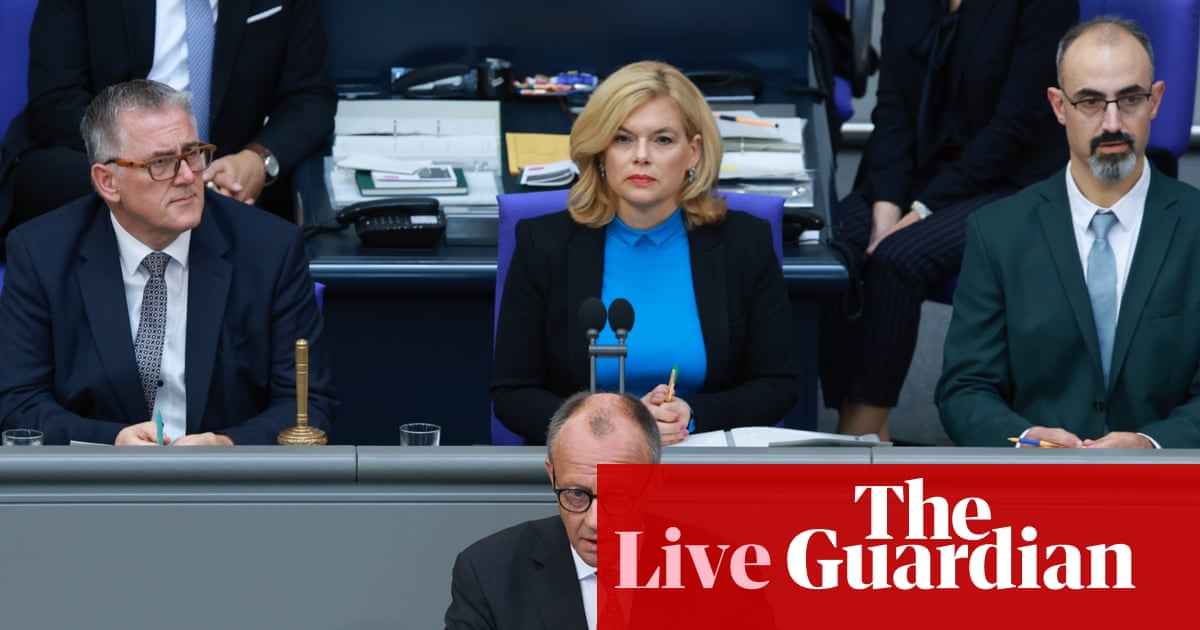Plans to invest £160bn of surplus funds from final salary pension schemes to boost the UK economy over the next 10 years have been dealt a blow by a Whitehall assessment that found there was likely to be little more than £11bn available to spend.
In a knock to Rachel Reeves’s growth agenda, a report by civil servants at the Department for Work and Pensions (DWP) found that the expected surpluses in occupational schemes would be used by businesses to offload their pension liabilities to insurance companies.
It could mean that as little as £8.4bn would be available for companies to invest in new equipment or technology, but the figure was likely to be nearer £11bn, the DWP said on Friday.
“It is estimated that an additional £11.2bn surplus will be extracted as a result of the preferred option to legislate over a 10-year period,” the report said.
Pension surpluses were a significant pillar of the chancellor’s plans to use private sector funds to grow the economy during a period when state funds are likely to be severely restricted.
Reeves is expected to lay out her growth plans on Wednesday in the spending review, which will set out the government priorities for the next year.
Earlier this year she said about 75% of final salary schemes, also known as defined benefit schemes, were in surplus, worth £160bn, but restrictions have meant businesses have struggled to invest them.
In her Mansion House speech in November, Reeves also outlined proposals for pension megafunds to be created from individual defined contribution schemes and a merger of local authority pension schemes to make the pensions industry more cost-effective.
A pensions bill going through parliament will allow pension fund trustees to unlock trapped surplus funds that Reeves said would increase investment in British businesses and lift economic growth.
Hundreds of final salary schemes, which spent decades in deficit, meaning the value of their obligations to members outweighed their assets, have moved into surplus in recent years after an increase in interest rates.
“Although fewer than 700,000 people are actively saving into a private sector defined benefit scheme, the sector remains a significant market within the UK economic landscape,” the report said. “Across around 5,000 schemes, around nine million members are being supported with assets of around £1.2tn.”
An impact assessment by DWP officials said legislation was needed to overhaul the pension system and give trustees the power to access surplus funds.
It said a failure to act would also mean “an opportunity to benefit members, businesses and to drive economic growth would be missed. Therefore ‘do nothing’ is not considered a desirable option.”
However, a combination of factors means the expected surplus for investment is reduced to no more than £12bn over 10 years, in part because the legislation does not force trustees of defined benefit funds to use surpluses for investment, and that most occupational final salary schemes have reached a level where a buyout is possible.
In a note for the Pension Insurance Corporation, an independent expert, John Ralfe, said: “Forget about £160bn of pension surpluses just waiting, as Rachel Reeves said, to be paid out to ‘drive growth and boost working people’s pension pots’.
“The DWP figures estimate just a fraction of this – under £12bn – will be paid out over the next 10 years, mainly because most companies want a full buyout with an insurance company.
“And the bill contains no details of how pensions will be protected if cash is withdrawn. Member security must be a priority with strict rules on repaying amounts if funding deteriorates,” he added.
Many pension fund trustees are known to be concerned that allowing company boards access to surplus funds could leave their schemes vulnerable after a panic in financial markets.
Without strong safeguards, giving businesses access to surplus pension funds could also make them more attractive targets for foreign takeovers. It is understood the new regime will allow trustees to block moves to access surplus funds if they believe it will undermine the safety of the fund.
The pensions minister Torsten Bell said: “I have read the impact assessment, and I am satisfied that, given the available evidence, it represents a reasonable view of the likely costs, benefits and impact of the leading options.”
The Treasury and the DWP were contacted for comment.

 3 months ago
111
3 months ago
111

















































